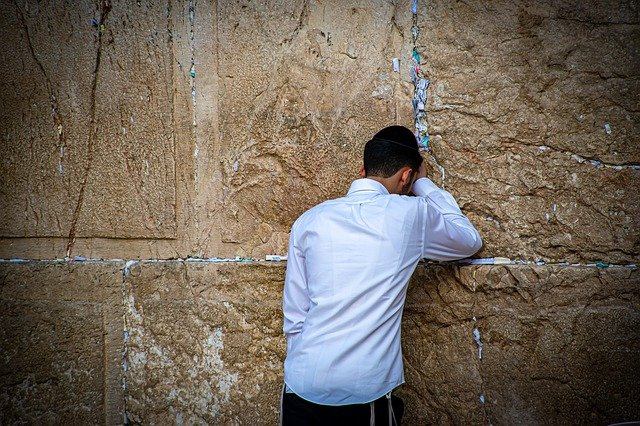If there’s anything that can be said of Neh 9, it is this:
“if we are faithless, he remains faithful,” (2 Tim 2:13)
Unlike the previous chapter where the people started in mourning and Ezra told them it wasn’t about mourning, it was about celebration, this chapter starts out with mourning and it’s appropriate. And then it switches to celebration. Celebration is at the heart of the New Year’s month.
It’s the 24th day of the 7th month and the Feast of the Booths ended a couple of days ago. There was great celebration.
But now it’s time to think on the ways of God, the history and the future, something that happens often in a New Year’s month.
When the Israelites gathered, they assembled in their clothing to signify mourning. They dressed in sackcloth and put dust on their head and they fasted. A fast of repentance.
For 1/4 of the day they read and listened to the words from the Book of the Law. Another 1/4 of the day they spent in confession and worship. Confession and worship are deep friends when one realizes the extent of God’s mercy.
The Levites stood on the platform and cried out loudly to the LORD their God. Then they said to the people,
“Stand up, Praise Yahweh your God from everlasting to everlasting” (Neh 9:5).
And then it began. The retelling of God’s extraordinary goodness and the ever-wandering hearts and eyes and hands of the Israelites.
- God was exceedingly good and kind (Neh 9:3-15)
- The people eventually acted arrogantly (Neh 9:16-17)
- God was still good to them anyway blessing them (Neh 9:18-25)
- God sent warning but they continued to rebel so God allowed their discipline (Neh 9:26-27)
- They cried out to God and God restored them, but then they returned to evil as soon as they had relief (Neh 9:28)
- God brought warning again and again they acted arrogantly (Neh 9:29-30)
- God was patient with them but eventually brought stronger discipline (Neh 9:30)
- God never abandon them (Neh 9:31)
- And now was the prayer: God, help! We are slaves in our own land! (Neh 9:36-37)
Here’s their prayer (Neh 9:36-37):
Here we are today,
slaves in the land You gave our ancestors
so that they could enjoy its fruit and its goodness.
Here we are—slaves in it!
Its abundant harvest goes to the kings
You have set over us,
because of our sins.
They rule over our bodies
and our livestock as they please.
We are in great distress.
The problem was that even though they were back in their own land, the kings of Babylon still demanded tribute, which was basically ridiculous levels of taxation on all the peoples. It was a great burden and left the people barely on the edge of survival.
So the Israelites were worshipping the great goodness of God to them over the centuries, while at the same time repenting and confessing their sin from the centuries. It wasn’t just a nice thing to do on Sabbath, they were laying the foundation for renewing their covenant with the Lord (Neh 9:38) which we will see in the next chapter.
This chapter is a good message for us. Even when we unfaithful, God is still faithful in covenant. He is good to us even when we aren’t good to him. His greatest love is sometimes to just warn us. Having gone through that warning in the past, it’s painful and good. I can’t imagine where I’d be if he hadn’t of taken my discipline so seriously.
At the same time there’s a need on our part for confession and worship. In many ways they go hand in hand. It’s good to not only confess our sins to the Lord but to other people as well. That’s when our sins get real.
With that confession of sin it should lead to not a life of guilt, moping and carrying shame, but worship. Worship because he is good, merciful and kind to receive us even after our seasons in sin-land.
1 John 1:9 If we confess our sins, He is faithful and righteous to forgive us our sins and to cleanse us from all unrighteousness.
Confession and worship.
They are a powerful combination so much so that if you study revival history, you’ll see it almost always begins with people falling under great conviction, confessing their sins to one another, and worshiping the Lord with abandon.
The world could use that right now.



